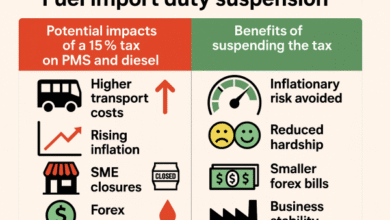Senate uncovers N10bn hidden in education budget

![]() The Senate Committee on Education, yesterday, uncovered N9,982,258,479 hidden in the budget of parastatals by the Federal Ministry of Education.
The Senate Committee on Education, yesterday, uncovered N9,982,258,479 hidden in the budget of parastatals by the Federal Ministry of Education.
The committee, which discovered the amount at the commencement of its 2016 budget defence, said the amount was hidden in the ministry’s parastatals.
Vanguard reported that the parastatals’ allocation for the year, according to the Senate Committee, increased at geometric progression by almost N10 billion while the entire personnel cost for the ministry and all its subsidiaries including schools and colleges declined drastically when compared to that of last year.
To this end, the committee chairman, Senator Aliyu Wamakko, ruled that the permanent secretary and the ministry should go back to the drawing board and come up with a more sensible overhead cost, saying its discovery was that the huge sum was deliberately hidden under parastatals’ personnel cost.
As seen, the ministry’s parastatals’ personnel cost rose from N88.1 billion in 2015 to as high as N98.1 billion in 2016 estimate proposals while the personnel budget of universities reduced by as much as N16.245 billion, declining from N227.2 billion in 2015 to N211.0 billion in 2016.
Similarly, colleges of education budget decreased from N40.2 billion in 2015 to N37.6 billion, while polytechnics’ personnel cost which previously stood at N61.44 billion in 2015 was trimmed to N58.23 billion just as unity colleges’ budget had been cut from N288.7billion to N7.588 billion.
While the ministry itself reduced its budget by only N244.9 million from N3.768 billion in 2015 to N3.523 billion in 2016, UNESCO Paris was the worst hit with the drastic reduction of its budget from N288.3 billion in 2015 to N7.588 billion in 2016.
Minister of State for Education, Professor Anthony Anwuka,who appeared before the Senate Committee on Secondary School Education for budget defence, in company of the ministry’s Permanent Secretary, Mrs. Folasade Yemi-Esan, gave account of the education budget performance in 2015.
He said N483.183 billion budget was earmarked for education in 2015, with only N13.279 billion released.
Anwuka added that only 50 per cent of N23.5 billion, amounting to N11.9 billion was released for capital education.
However, after his submission, a member of the committee and Senate Chief Whip, Senator Olusola Adeyeye, queried the rationale behind the increase in only the budget of parastatals by only about N10 billion while the budget of universities reduced by as much N16 billion.
Adeyeye wondered while parastatals which were meant to support the institutions should have their personnel budget increased by such a huge volume. He, therefore, demanded for an explanation.
“If you look at personnel cost on page 28, almost every sub-sector of the ministry lost some money except parastatals that got increase. What is special about the parastatals that they gained more than universities, colleges, polytechnics and unity schools? Why should the parastatals that are meant to serve them keep growing in personnel cost?” Adeyeye queried.
The minister pushed the question to the permanent secretary who for want of expression said they would go back to look into it.
She said: “We will go back and find the aggregate of the parastatals put together so that we can look into the details and find out those that are increasing and the difference between them.”
Dissatisfied by that response, Adeyeye insisted that the ministry must explain how a whopping sum of about N10 billion was added to the parastatals’ personnel budget at the expense of institutions which actually need budget increase.
He said: “The budget of the parastatals have N9 billion extra while others lose money. We can’t have a situation where schools are losing money and parastatals are gaining. How did parastatals have such a quantum leap?”
Responding again, Yemi-Esan said the reduction in personnel budgets of schools and colleges was not imposed on them. Rather, she said it was what they submitted that the ministry collated and submitted as their personnel costs.
Posted by Janice Johnson











